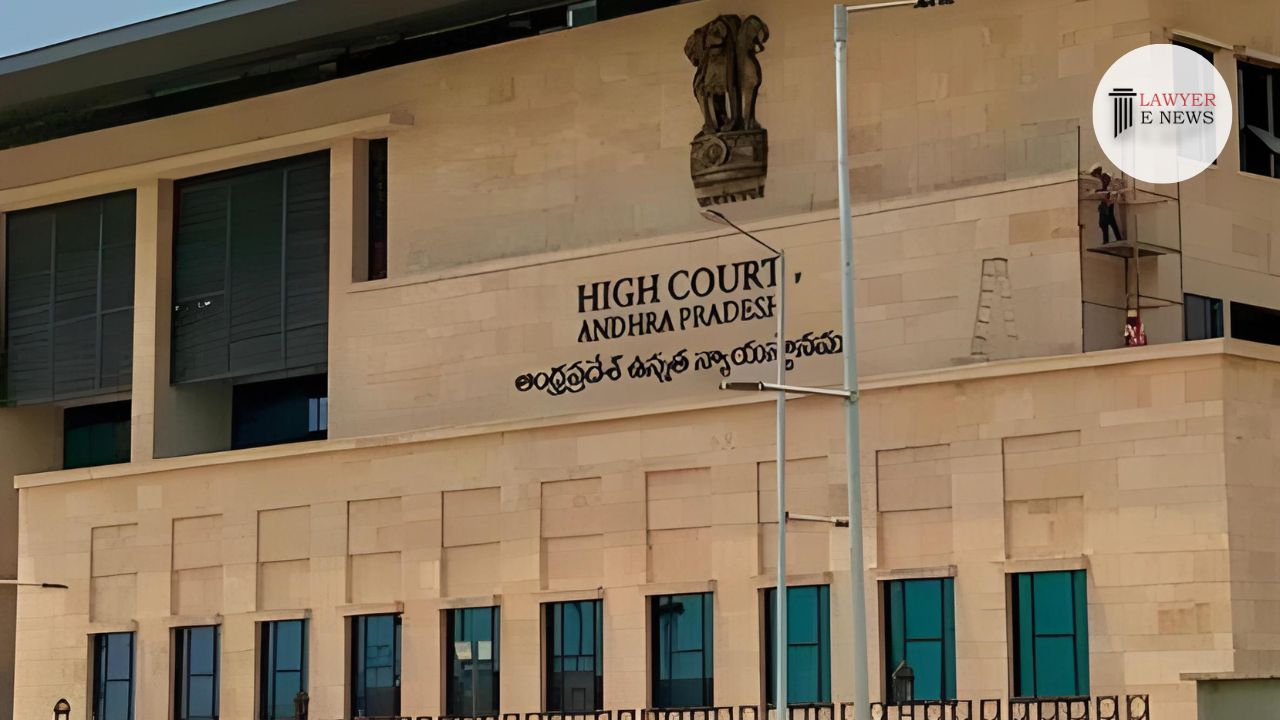-
by Admin
15 February 2026 2:16 AM



In a significant ruling, the Andhra Pradesh High Court, presided over by Justice V. Gopala Krishna Rao, overturned the decision of a lower court, finding a promissory note at the center of the dispute to be forged. The appellate suit, challenging a 1999 judgment by the Additional Senior Civil Judge of Tirupati, was filed by Rayadurgam Balasubramanyam, the defendant, against a decree obtained by C. Venkataramanaiah, the plaintiff, for recovery of a loan amount based on a disputed promissory note. The High Court ruled that the promissory note was not true, valid, or binding on the defendant.
The plaintiff, C. Venkataramanaiah, had filed a suit for the recovery of Rs. 1,19,600 based on a promissory note dated March 12, 1991, allegedly executed by the defendant, Rayadurgam Balasubramanyam, in the renewal of earlier debts. The plaintiff contended that he had lent the defendant various sums over time due to their close relationship and that the amounts were consolidated into the disputed promissory note. However, the defendant denied any such transaction, asserting that the promissory note was forged and fabricated for wrongful gain. The defendant also claimed to be a small farmer, denying any large business dealings and contesting the validity of the note.
The High Court emphasized the burden of proof on the plaintiff to demonstrate the genuineness of the promissory note. Justice V. Gopala Krishna Rao remarked that while the plaintiff claimed the note was executed as a renewal of prior debts, no consideration was passed under the disputed note. Additionally, the plaintiff failed to obtain signatures on the endorsements for the cancellation of earlier promissory notes (Ex.A8 to Ex.A14). The court observed that the plaintiff’s own admissions regarding the cancellation of the previous notes lacked sufficient corroborative evidence, weakening his claim of the note’s validity.
The case pivoted on the expert testimony provided by Pt. Ashok Kashyap, a document examiner, who concluded that the promissory note was not signed by the defendant. The court placed significant weight on this unchallenged expert evidence. Justice Gopala Krishna Rao noted, "The plaintiff did not choose to cross-examine the expert [DW2], and the evidence of DW2 was not tested or contradicted. The report clearly establishes that Ex.A1 [the promissory note] is a forged document."
The court also took note of the close relationships between the plaintiff and witnesses. Both witnesses PW2 and PW3, who attested to the execution of the promissory note, were closely associated with the plaintiff, which cast doubts on their impartiality. Moreover, the court found that these witnesses lacked personal knowledge of earlier transactions related to the cancelled promissory notes, further diminishing their credibility.The judgment reiterated that the opinion of a handwriting expert, while not conclusive, must be considered alongside other evidence. In this case, the expert's findings, coupled with the plaintiff’s failure to substantiate his claims with reliable evidence, led the court to conclude that the promissory note was forged. The court underscored that the absence of consideration under Ex.A1 and the lack of credible witnesses to the cancellation of prior notes undermined the plaintiff's case.
Justice V. Gopala Krishna Rao remarked, "For the aforesaid reasons, I am of the considered view that the suit promissory note is not true, valid, and binding on the defendant." He also stressed that "the evidence of DW2 [the expert] is not at all challenged by the plaintiff," and this uncontradicted expert testimony was pivotal in determining the case.
The High Court’s decision to dismiss the suit and set aside the lower court’s decree marks a significant instance of reliance on expert evidence in civil disputes involving forgery allegations. The ruling reaffirms that in cases of disputed documents, the burden of proof rests heavily on the party asserting their validity. This judgment will likely influence future civil litigation where the authenticity of financial instruments is contested.
Date of Decision: September 6, 2024
Rayadurgam Balasubramanyam vs. C. Venkataramanaiah
